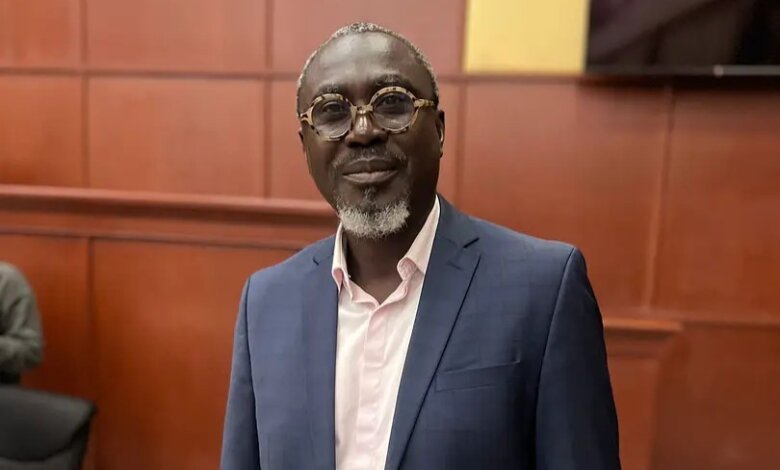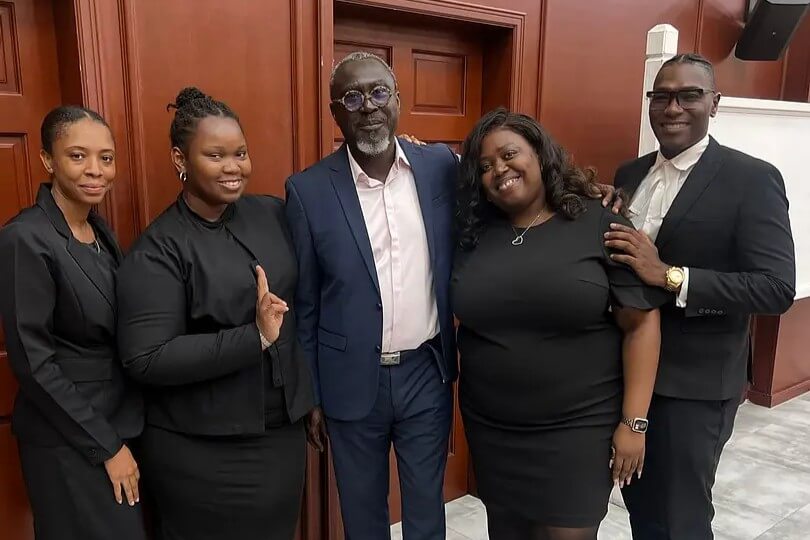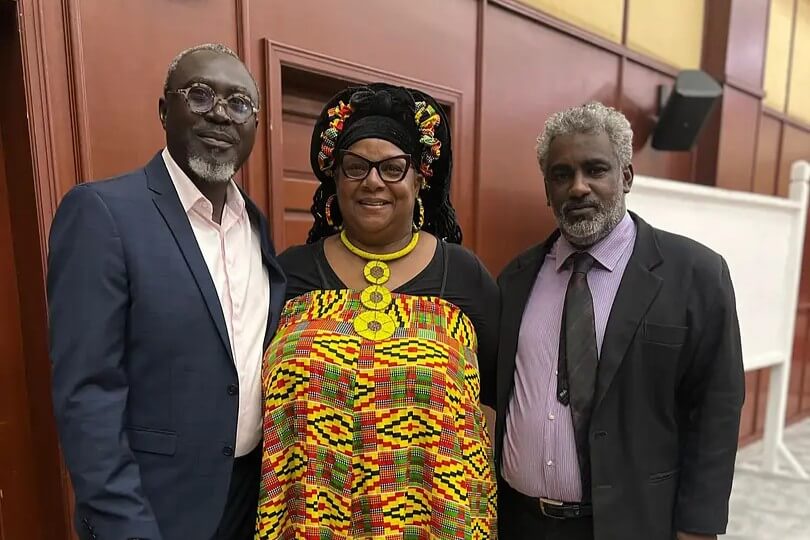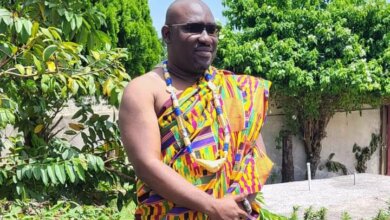High Court judge Tunde Bakre leaves lasting legacy in Antigua

Nigerian-born High Court judge, Tunde Ademola Bakre, who served two years with the Eastern Caribbean Supreme Court (ECSC) in Antigua and Barbuda, concluded his tenure on September 30, 2025. Appointed on October 1, 2023, his rulings challenged prosecutorial limits, freed the wrongfully pursued, and sparked vital debates on fairness and process.
As he departs for a new judicial role in the Turks and Caicos Islands, his legacy in Antigua and Barbuda on the bench left a profound mark on the nation’s criminal justice system.
Bakre, called to the Nigerian bar in 1993 and a judge at Nigeria’s Ogun State High Court since 2013, brought extensive experience to the ECSC, including a prior secondment in The Gambia’s High Court in 2018. His appointment by the Judicial and Legal Services Commission (JLSC) filled the vacancy left by Justice Colin Williams, who moved to Dominica’s criminal division.
Tasked with tackling a backlog of cases, Bakre presided over a series of landmark rulings that tested the boundaries of Antigua’s legal system, particularly in the realm of judge-alone trials, introduced to address COVID-era delays.
One of his earliest cases, in November 2023, was the nation’s first judge-alone murder trial. Bakre sentenced 30-year-old Jeffrey Daniel to 20 years for killing Robinson Roberts, his girlfriend’s stepfather, in a Newfield altercation. The trial, prosecuted under acting Director of Public Prosecutions Shannon Jones-Gittens, highlighted the efficiency of judge-alone proceedings in clearing backlogs.
In 2025, Bakre presided over the high-profile retrial of suspended police Superintendent Ray John and Shakema Charles, accused of forging passport bio-pages. After four weeks of testimony, he struck out the case, ruling that the charges did not fall under the Criminal Proceedings (Trial by Judge Alone) Act.
The decision stunned observers and exposed prosecutorial oversight, underscoring the limits of judge-alone trials in complex cases.

Equally, significant was Bakre’s ruling in the case of Jamaican national Methoni Vernon, accused of murdering farmer Roy Carridice in 2014. Vernon had relocated to Dominica, where police orchestrated his removal to Antigua without formal extradition. Bakre deemed this an “abuse of process,” ordering Vernon’s release to protect judicial integrity.
Defense attorney Andrew O’Kola praised the ruling, noting Bakre’s refusal to overlook procedural violations. “Justice Bakre brought a calm, steady authority to his duties at the High Court. He was not only well-prepared, but courteous and exacting,” O’Kola said, commending Bakre’s calm authority and focus on legal clarity.
Bakre also addressed mental health in criminal law. In the case of 24-year-old Brittany Jno Baptiste, who killed Jane Finch unprovoked, he reduced the charge from murder to manslaughter due to diminished responsibility but imposed a 27-year sentence, rejecting full leniency.
The decision, now under appeal by attorney Wendel Alexander, balanced compassion with accountability. Alexander described Bakre as a “remarkable gentleman” whose wry humor and sharp focus kept courtrooms engaged yet mindful of the stakes.
In a historic review hearing, Bakre presided over the case of Mellanson Harris, convicted in the 1994 “Computer Challenger Murders” for killing four yacht passengers off Barbuda. Initially sentenced to death, Harris’s penalty was reduced to 45 years.

As a “model inmate,” he earned Bakre’s approval for unconditional release, reflecting the judge’s willingness to weigh rehabilitation against past crimes.
Bakre’s tenure sparked local debate. At his 2023 appointment, some questioned the selection of a non-Caribbean judge, citing concerns over regional legal nuances. Supporters, however, emphasized the ECSC’s practice of leveraging Commonwealth judges to ensure impartiality in small jurisdictions.
At an informal send-off, cricket legend Sir Vivian Richards called Bakre a “brother,” praising his camaraderie and ability to forge connections beyond the courtroom. Colleagues gathered on September 25, 2025, to wish him well as he prepares for his next role in the Turks and Caicos Islands.
Attorney Alexander reflected, “There was never a dull moment with Justice Bakre. His habits of fairness and clarity will serve any bench well.”
His rulings, described by O’Kola as the “quiet grammar of justice,” proved his commitment to fairness, earning respect even from those who disagreed with his outcomes. “He kept counsel focused, managed challenges without drama, and gave reasons that clarified both process and result,” O’Kola noted.
Written by Abeeb Lekan Sodiq

Abeeb Lekan Sodiq is the Managing Editor of theafricandream.net, a pan-African news website subsidiary of US-based TheAfricanDream LLC. He is also a Human Resource Practitioner, and a freelance Graphics Designer. He has worked with prominent personalities, including ambassadors, secretariats, international organisations, universities, celebrities, NGO, and media firms.





